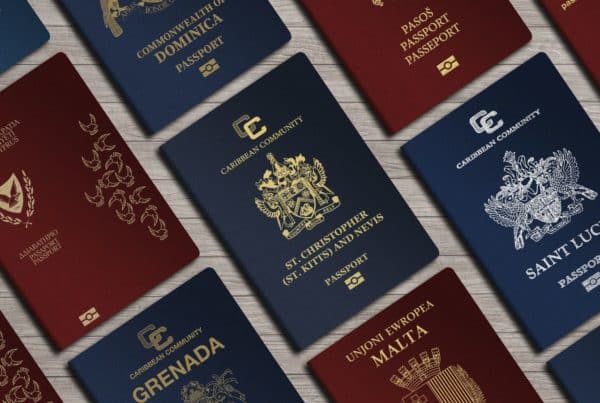
BEIRUT: With Lebanese passport holders unable to travel to most destinations without first applying for a visa, those with means are using hefty investments to obtain more desirable passports. Lebanese nationals can enter only 39 of 218 total global destinations without applying for a visa according to the Visa Restrictions Index 2016, published by Henley & Partners, a firm specializing in “residence and citizenship planning” since the 1990s.
Contrast this with passport holders from the little-known island nation of St. Kitts & Nevis in the West Indies who have easy access to 132 countries. The country is among those with a long-running “citizenship-by-investment” program.
Among European citizens, these programs are a way to avoid taxation. But for the Lebanese and others in the Middle East, the main aim is freedom of movement.
“Our Lebanese clients are usually driven by concern for their children’s futures and their ability to live or study abroad,” Marc Menard, managing partner of Henley & Partners, told The Daily Star. “Another main preoccupation is being able to relocate quickly if the country becomes unstable.”
With over 25 offices worldwide, Henley & Partners opened a new branch in Beirut in April 2016 to respond to the needs of a growing client base. “Over the past few years, our office in Dubai received hundreds of inquiries from Lebanese and Syrian nationals in Lebanon – due mainly to the worsening security situation in the region,” Menard said.
According to the firm’s index, the Lebanese passport ranks a dismal 93rd out of 104 for visa restrictions. While Lebanese citizens do not have a high rejection rate for short-term “uniform” visas for the Schengen zone compared to other countries in the MENA region – in 2015, 10.5% of Lebanese visa applications were refused, compared to 12% from the United Arab Emirates and 26.9% from Algeria – the application process is one that many would pay to avoid.
“Lebanese businessmen who regularly travel abroad want the freedom to board a flight whenever they want,” Menard said. Syrian customers who approach the Henley & Partners Beirut office have similar motives. “Unlike what one would think, our Syrian clients do not want to relocate to another country, they just want to have the freedom to travel,” he added.
Lebanese nationals mainly opt for investment programs in the EU, which come with more advantages but are also the most expensive. Non-EU nationals can acquire a residency permit in Portugal through the transfer of capital worth 1 million euros ($1.1 million) or the acquisition of real estate with a minimum value of 500,000 euros ($530,000). After six years as a resident, an applicant is eligible to apply for citizenship – provided he or she can prove fluency in Portuguese and ties in the country.
“The Golden Residency Program in Portugal is the most popular among Lebanese, but also the most misunderstood,” said Jeremy Savory, founder and CEO of Savory & Partners.
The Dubai branch and Beirut office cater to a client base of mainly Lebanese, but also Iraqis and Syrians. “Some service providers attract customers by making it look like residency is guaranteed, but we highlight that there are no guarantees given by the government,” Savory said.
Applications to the Golden Residency Program in Portugal have gone from two in 2012, when the program was created, to 1,273 in 2016 – with the Lebanese ranking fifth in Savory & Partners’ client base.
Since the outbreak of the war, Syrian nationals have also turned to investment programs. However, they often have more limited funds and opt for citizenship-by-investment programs, popular in the Caribbean.
A minimum, nonrefundable contribution of $200,000 is enough to acquire citizenship in Grenada, an island in the southeast Caribbean sea whose passport grants visa-free travel to 109 countries – among which are Schengen area countries, the United Kingdom and China.
Read more: The Daily Star
Our Availability
We are available on every channel convenient for you.
- Landline: +971 (0) 4 430 1717
- Mobile Phone: +971 54 440 2955
- WhatsApp: +971 54 440 2955
- E-mail: [email protected]
- Signal: +971 54 440 2955
- Telegram: +971 54 440 2955











